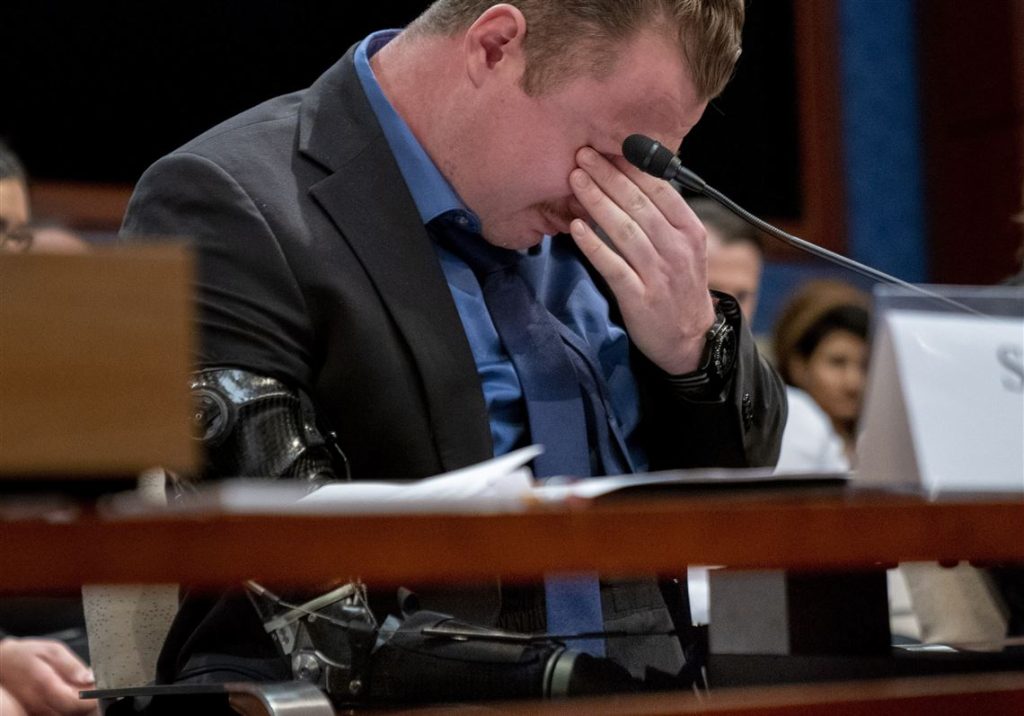“What happened in Afghanistan was a systemic breakdown of the federal government at every level,” Congressman Michael McCaul, the Republican chair of the foreign affairs committee, said in his opening remarks, vowing to hold to account every administration official responsible for what he said was the “abdication of the most basic duties of the United States government to protect Americans and leave no one behind”.
The United States held a hearing to discuss the withdrawal of troops from Afghanistan, and several veterans were invited to give their testimony. These veterans, who had served in Afghanistan, had firsthand experience of the conflict and could provide valuable insight into the impact of the withdrawal on the Afghan people and the US military.
The hearing was held against the backdrop of a volatile situation in Afghanistan. The Taliban had regained control of large parts of the country, and there was a growing concern about the safety of US citizens and Afghan allies who had supported the US during the war. The hearing was an opportunity for veterans to share their experiences and provide recommendations for the way forward.
The veterans who gave testimony had served in different capacities during the war. Some had served as frontline soldiers, while others had worked in support roles. Despite their different roles, they all shared a common experience of the brutality of the war and the toll it had taken on their mental and physical health.
One of the key themes that emerged from the veterans’ testimony was the importance of a clear exit strategy. Many veterans felt that the US had entered the war without a clear understanding of what victory would look like or how it could be achieved. As a result, the war had dragged on for years, with no end in sight.
The lack of a clear exit strategy had also made it difficult for the US military to plan for the withdrawal. Many veterans spoke about the chaotic scenes they witnessed during the withdrawal, with troops scrambling to evacuate people and equipment without a clear plan in place. This had put the lives of US troops and Afghan allies at risk, and had contributed to the chaos and confusion that followed the withdrawal.
“The withdrawal was a catastrophe in my opinion and there was an inexcusable lack of accountability and negligence,” said marine Sgt Tyler Vargas-Andrews, who was grievously injured in the suicide bombing outside Kabul’s airport that killed 13 US service members and scores of Afghans.
Another key theme that emerged from the testimony was the impact of the war on the Afghan people. Many veterans spoke about the devastation they had witnessed in Afghanistan, with entire communities destroyed and thousands of people displaced. They spoke about the difficulty of building trust with Afghan civilians, many of whom had been traumatized by years of war and violence.
Despite these challenges, many veterans felt a strong sense of obligation to the Afghan people. They spoke about the importance of continuing to support Afghan allies, and of providing humanitarian aid to the people of Afghanistan. They also emphasized the need for the US to learn from its mistakes in Afghanistan and to develop a more nuanced and strategic approach to foreign policy.
The veterans’ testimony was met with a mixed response from members of Congress. Some praised the veterans for their courage and for their willingness to speak out about the challenges of the war. Others criticized the veterans for their perceived lack of patriotism, arguing that their testimony undermined the US military and the broader American mission in Afghanistan.
Despite these criticisms, the veterans’ testimony had a significant impact on the public debate around the war in Afghanistan. It helped to shine a light on the human cost of the conflict, and on the need for a more thoughtful and strategic approach to foreign policy. It also provided a platform for veterans to share their experiences and to advocate for the needs of their fellow service members and Afghan allies.
In the years following the hearing, the US government continued to grapple with the aftermath of the war in Afghanistan. The Taliban remained a powerful force in the country, and there was a growing concern about the safety of US citizens and Afghan allies. However, the veterans’ testimony had helped to lay the groundwork for a more nuanced and thoughtful approach to foreign policy, and had provided a voice for the countless service members who had sacrificed so much during the conflict.
In conclusion, the veterans who gave testimony at the hearing on the US withdrawal from Afghanistan in 2023 provided valuable insights into the impact of the war on both the US military and the Afghan people. Their testimony highlighted the need for a clear exit strategy, a more nuanced approach to foreign policy, and a continued commitment to supporting our troops.
Dominick Izzo


